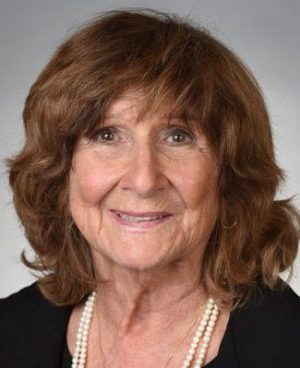
My interest in multiple sclerosis began in the late 1970’s when I was a public health nurse. Many of my patients were homebound due to advanced MS and had a multiplicity of physical, emotional, and financial needs. MS at that time was the “crippler of young adults” and resources were few and far between. As a nursing clinician, I did what I could for patients and families, based on what was available at that time.
In 1980, during the community care semester because I had practiced in public health, I was placed with the local chapter of the National MS Society. I was required to do home visits, develop meetings and programs, and evaluate the healthcare needs of the MS community.
Once I became a nurse practitioner in 1983, I anticipated establishing a primary care practice with a collaborating physician. But, multiple sclerosis pulled me back in when I was asked to identify needs of patients and families in Northern New Jersey. One looming gap was the lack of a comprehensive care program outside of New York City. A group of dedicated patients, families, and community leaders banded together to raise money for a comprehensive care center in MS and they achieved their goal in 1985. The MS Center at Holy Name Hospital in 1985 which provided patients and families with a comprehensive model of care utilizing the team approach. I was asked to stay on as Clinical Director and nursing clinician.
Each day, as I went home, I felt that we were moving one step ahead in conquering MS. Obviously, all of our hopes started to be fulfilled in the early 1990’s with the advent of disease modifying therapies, new technology, and the Internet. Patients began to be diagnosed and treated earlier and the role of the nursing professional was integral in treatment outcomes and patient satisfaction.
Disease modification involves the MS immune system and it is urgent that nursing professionals understand the complexity of this process in order to better educate patients and families about new treatments. In addition, as “front line practitioners,” nurses, are challenged to help patients manage symptoms, avoid complications, and prevent injury/trauma. A wellness focus is consistent with the leit motif of MS nursing which is to positively impact the quality of life of all those affected by MS.
During recent years, I have assumed more administrative duties at the CMSC and IOMSN but I have never left who I am and who I will continue to be until the end of my career. I provide or I try to ensure comprehensive care incorporating a philosophy of collaboration, continuity of care, and respect for individual differences in all those affected by multiple sclerosis.